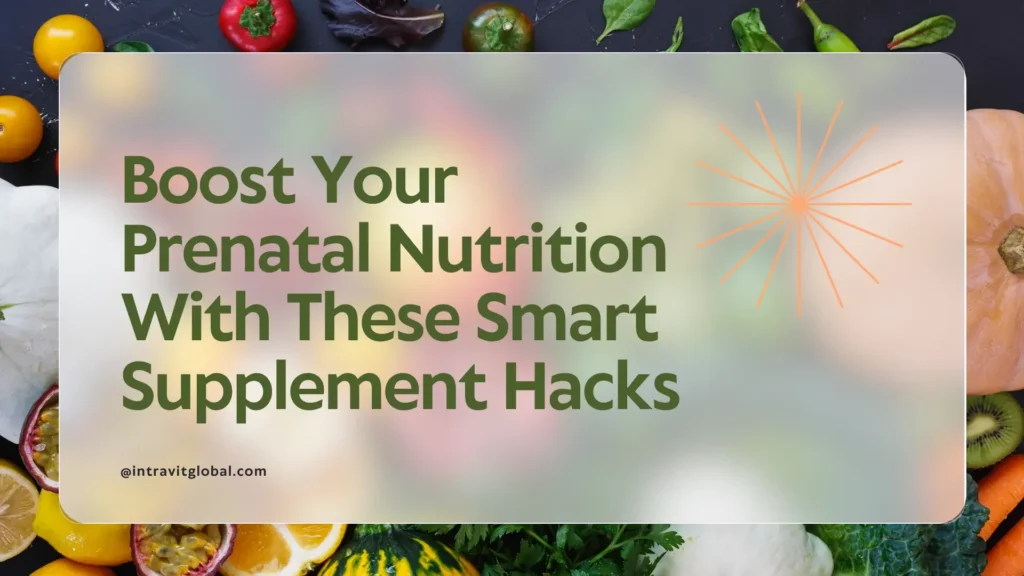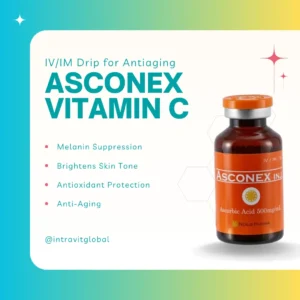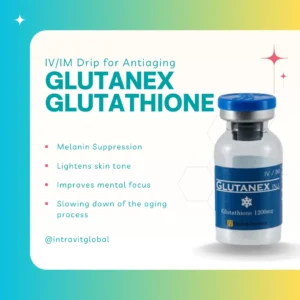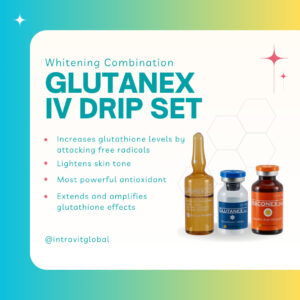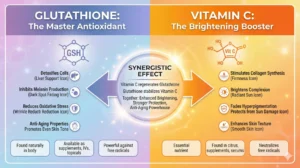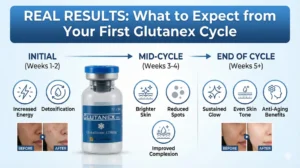Step Up Your Prenatal Nutrition Game With These Supplement Hacks
Introduction
Pregnancy is an incredible journey that requires special attention to nutrition. Your baby’s development depends on essential vitamins and minerals, but getting the right nutrients from food alone can be challenging. That’s where smart supplementation comes in!
If you’re expecting, knowing how to optimize your prenatal nutrition with the right supplements and hacks can make a big difference in your health and your baby’s growth. In this article, we’ll explore the must-have prenatal supplements, how to enhance absorption, and simple tricks to avoid common side effects.
1. Understanding Prenatal Nutrition
The Role of Essential Nutrients in Pregnancy
During pregnancy, your body’s nutritional needs skyrocket. Nutrients like folic acid, iron, calcium, and omega-3 fatty acids are critical for fetal development, preventing birth defects, and maintaining maternal health. A well-rounded diet can provide many of these nutrients, but it’s often not enough, especially with morning sickness, food aversions, or increased demand.
How Diet Alone May Not Be Enough
Even if you eat a balanced diet, soil depletion and modern food processing can strip nutrients from food. For example:
Folic acid is essential for preventing neural tube defects, but many women don’t get enough from food sources like leafy greens.
Iron deficiency is common due to increased blood volume during pregnancy.
Omega-3 fatty acids, crucial for brain development, are often lacking in typical diets.
Common Deficiencies in Pregnant Women
Many pregnant women experience deficiencies in:
Iron, leading to fatigue and anemia
Vitamin D, affecting bone health and immunity
Folate, increasing the risk of birth defects
Iodine, crucial for thyroid function and baby’s brain development
That’s why prenatal supplements are essential to fill these gaps.
2. Key Prenatal Supplements You Should Take
Folic Acid: Preventing Birth Defects
Folic acid (or folate in its natural form) is a must-have supplement for preventing neural tube defects in the baby’s brain and spine. Experts recommend at least 400-600 mcg daily before and during pregnancy.
Iron: Supporting Oxygen Transport
Your body needs 27 mg of iron per day during pregnancy. Iron helps transport oxygen to the baby and prevents anemia, which can cause fatigue, dizziness, and complications during childbirth.
Calcium & Vitamin D: Strengthening Bones and Teeth
Calcium and vitamin D work together to develop your baby’s bones and teeth. You need 1,000 mg of calcium and 600 IU of vitamin D daily to keep both you and your baby healthy.
Omega-3 Fatty Acids: Enhancing Brain Development
DHA and EPA, found in omega-3s, play a vital role in fetal brain and eye development. If you don’t eat enough fatty fish like salmon, consider an omega-3 supplement with at least 200-300 mg DHA.
Choline: Boosting Fetal Brain Growth
Choline is lesser-known but equally essential for brain development. Many prenatal vitamins lack choline, so check your labels and aim for 450 mg daily.
3. Smart Supplement Hacks for Maximum Benefits
Timing Matters: When to Take Supplements for Best Absorption
Taking your supplements at the right time can make them more effective:
Iron is best absorbed on an empty stomach but can cause nausea. Taking it with vitamin C (like orange juice) helps absorption.
Calcium competes with iron for absorption, so take them at different times.
Omega-3s should be taken with a meal containing healthy fats for better absorption.
Pairing Supplements for Better Absorption
Some nutrients work better together:
Iron + Vitamin C → Boosts iron absorption
Calcium + Vitamin D → Enhances calcium uptake
Folate + B12 → Supports red blood cell production
Avoiding Nutrient Interference
Certain combinations can reduce effectiveness:
Calcium blocks iron absorption → Take them separately
Too much vitamin A can be harmful → Stick to recommended doses
Caffeine reduces iron absorption → Limit coffee or tea near supplement time
Choosing High-Quality Prenatal Vitamins
Look for third-party tested, high-quality prenatal vitamins without artificial fillers or unnecessary additives. Methylated folate (instead of synthetic folic acid) is better absorbed, especially for women with MTHFR gene mutations.
4. Foods vs. Supplements: Finding the Right Balance
Whole Foods vs. Synthetic Nutrients
While prenatal supplements are essential, they should not replace a healthy diet. Whole foods provide a complex mix of vitamins, minerals, and antioxidants that work synergistically for better absorption. For example:
Leafy greens (spinach, kale) are rich in natural folate.
Nuts and seeds (almonds, chia seeds) provide magnesium and omega-3s.
Dairy products and fortified plant-based milk supply calcium and vitamin D.
The Synergy of Diet and Supplementation
Your body absorbs nutrients better when they come from food. However, some vitamins (like folic acid and iron) may still need supplementation to meet pregnancy demands.
When to Rely More on Supplements
If you have dietary restrictions (vegan, gluten-free, or lactose-intolerant), supplements are even more crucial. For instance:
Vegans may lack vitamin B12, iron, and DHA.
Women with morning sickness might struggle to eat enough nutrient-dense foods.
A good rule of thumb? Prioritize whole foods, but use supplements to fill in the gaps.
5. Overcoming Common Supplement Side Effects
Nausea and Digestion Issues
Many pregnant women experience nausea when taking supplements, especially iron. Try these tips:
Take vitamins after a meal instead of on an empty stomach.
Switch to chewable or liquid vitamins if pills cause nausea.
Choose low-iron prenatal vitamins in the first trimester (when iron needs are lower).
How to Avoid Constipation from Iron Supplements
Iron is notorious for causing constipation. Here’s how to manage it:
Drink plenty of water to keep your digestive system moving.
Eat fiber-rich foods like prunes, flaxseeds, and whole grains.
Consider gentler iron supplements (like ferrous bisglycinate) that cause less constipation.
The Best Forms of Supplements to Reduce Discomfort
If traditional supplements make you feel sick, look for:
Methylated folate instead of synthetic folic acid for better absorption.
Liquid or gummy vitamins if pills are hard to swallow.
Iron in slow-release form to prevent digestive issues.
6. DIY Prenatal Smoothies & Recipes for Better Absorption
Nutrient-Packed Smoothie Recipes
If swallowing pills is a struggle, prenatal smoothies are a tasty alternative! Here are two simple recipes:
Iron-Boosting Green Smoothie
✔ 1 cup spinach
✔ 1 banana
✔ ½ cup orange juice (vitamin C boosts iron absorption)
✔ 1 tbsp chia seeds (omega-3s)
✔ 1 cup almond milk
DHA & Protein Pregnancy Smoothie
✔ 1 cup Greek yogurt (protein + probiotics)
✔ 1 tbsp flaxseeds (DHA)
✔ 1 cup mixed berries (antioxidants)
✔ 1 tsp honey
✔ ½ cup oat milk
Blend and enjoy a prenatal powerhouse in a glass!
7. The Role of Probiotics in Prenatal Health
Gut Health and Pregnancy
A healthy gut improves digestion, immunity, and even mental health. During pregnancy, probiotics help:
Reduce constipation and bloating.
Lower the risk of gestational diabetes.
Support a healthy vaginal microbiome for labor.
How Probiotics Improve Nutrient Absorption
Good gut bacteria enhance the absorption of vitamins like B12, iron, and folate. Natural sources include:
Yogurt and kefir
Sauerkraut and kimchi
Kombucha and miso
If you’re struggling with digestion, consider adding a probiotic supplement to your routine.
8. Smart Shopping Tips for Prenatal Supplements
How to Read Labels
Not all prenatal vitamins are created equal! Look for:
✅ 400-800 mcg folate (not folic acid, if possible)
✅ 27 mg iron (if recommended by your doctor)
✅ DHA (at least 200-300 mg)
✅ Calcium + Vitamin D (for strong bones)
✅ No artificial dyes or fillers
Avoiding Harmful Additives
Many supplements contain unwanted ingredients like:
Synthetic dyes
Excessive sugars (in gummy vitamins)
Artificial preservatives
Stick to reputable brands that use clean, natural ingredients.
Organic vs. Non-Organic Supplements
Organic supplements often contain fewer additives, but they’re not always necessary. The key is choosing high-quality, well-absorbed nutrients over marketing hype.
9. Consulting Your Doctor: Personalized Supplementation
Understanding Your Unique Nutritional Needs
Every pregnancy is different! While general guidelines are helpful, your doctor can:
Test for iron, vitamin D, and B12 deficiencies.
Recommend the best prenatal vitamins for your needs.
Adjust dosages based on bloodwork.
Getting Tested for Deficiencies
A simple blood test can reveal nutrient gaps. If you’re low in something, your doctor may suggest higher doses of specific supplements.
Adjusting Supplements Based on Medical Advice
If you have a condition like gestational diabetes, anemia, or thyroid issues, supplement needs may change. Always check with your OB-GYN before making changes.
10. Postpartum Nutrition: Continuing Supplementation After Birth
Why Nutrients Matter After Delivery
Your body goes through massive changes postpartum, including:
Blood loss (increasing iron needs)
Breastfeeding (higher demand for DHA and calcium)
Hormonal shifts (needing B vitamins and magnesium)
Best Supplements for Postpartum Recovery
Continue taking:
Prenatal vitamins (for at least 6 months postpartum)
Iron (if you had blood loss during labor)
Omega-3s (for brain function and mood)
Supporting Breastfeeding with Proper Nutrition
If you’re nursing, your baby still relies on you for vitamins! Stay hydrated, eat nutrient-dense foods, and supplement as needed.
Conclusion
Prenatal nutrition is more than just taking a daily pill—it’s about smart supplementation combined with a balanced diet. By choosing the right prenatal vitamins, optimizing absorption, and addressing side effects, you can nourish both yourself and your growing baby.
Remember, every pregnancy is unique, so listen to your body and consult your doctor for the best approach. With these smart supplement hacks, you’re setting yourself and your baby up for a healthy, thriving journey.
-
Hot-Sale
Asconex Vitamin C (Ascorbic Acid) IV/IM Drip for Antiaging, Melanin Suppression, Antioxidant and Skin Brightness Benefits
£38.00 – £70.00Price range: £38.00 through £70.00 Select options This product has multiple variants. The options may be chosen on the product page -
Hot-Sale
Glutanex Glutathione 1200mg IV Drip for Antiaging, Melanin Suppression, Antioxidant Skin Brightness Benefits
£65.00 – £120.00Price range: £65.00 through £120.00 Select options This product has multiple variants. The options may be chosen on the product page -
Hot-Sale
Glutanex IV Drip Set, Whitening Combination Kit with Glutathione, Vitamin C, Lipoic Acid for Antiaging, Skin Brightness Benefits
£30.00 – £250.00Price range: £30.00 through £250.00 Select options This product has multiple variants. The options may be chosen on the product page
FAQ
1. What happens if I forget to take my prenatal vitamins?
Missing a day isn’t the end of the world! Just take your next dose as scheduled—don’t double up.
2. Can I take regular multivitamins instead of prenatal ones?
No, because prenatal vitamins contain specific pregnancy-friendly nutrients like extra folate, iron, and DHA.
3. What’s the best time of day to take prenatal supplements?
Mornings work for most, but if nausea is an issue, try taking them at night with food.
4. Do I need to take supplements if I eat a balanced diet?
Yes! Even with a perfect diet, extra nutrients like folic acid, iron, and omega-3s are essential for fetal development.
5. Are gummy prenatal vitamins as effective as regular ones?
Not always—many lack iron and DHA. If using gummies, make sure to supplement the missing nutrients separately.
Checkout our Facebook Page and leave your review about our Health Care Products.

